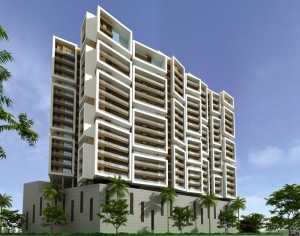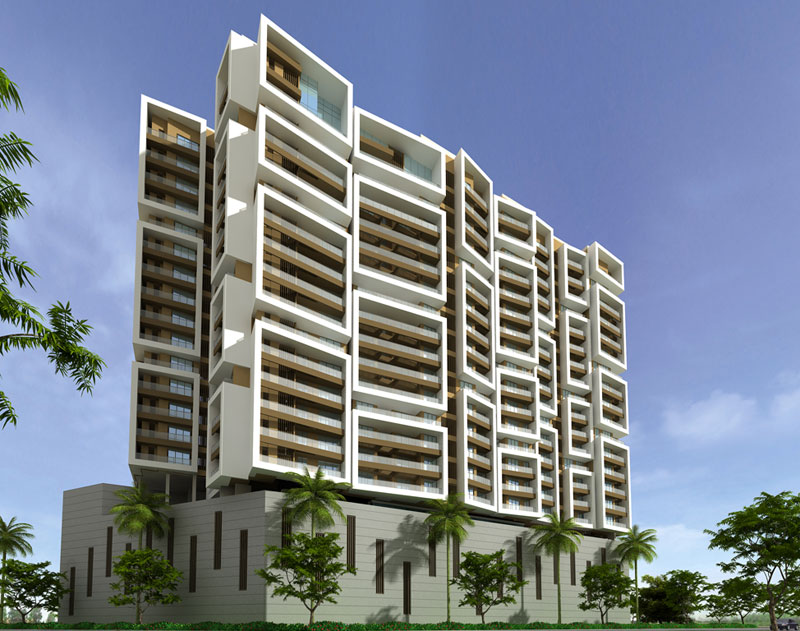In Mumbai premium paid by developers is higher than construction cost.
 While the developers across the country are cribbing about the input cost, including the land cost and the construction cost, in Mumbai the developers have to grapple with another even higher cost – the premium. The developers maintain that the premium is now higher than the cost of construction.
While the developers across the country are cribbing about the input cost, including the land cost and the construction cost, in Mumbai the developers have to grapple with another even higher cost – the premium. The developers maintain that the premium is now higher than the cost of construction.
The high premium paid by developers in Mumbai often defies the mathematics of realty business. The developers also blame that the frequent changes in the building regulations have dramatically changed the financial modeling of realty business in the city.
Calculating the cost & benefit of premium to be paid is today the major concern of the developers. As per the DCR (Development Control Regulations) in Mumbai the developers are granted a total FSI of 2. Out of this, the base FSI of 1 can be availed free of cost while the remaining has to be purchased by the developers in the form of TDR (Transfer of Development Rights). TDR is like a floating FSI and is needed for the projects where the market demands more breathable space like the balconies etc.
So, if a project applies for FSI of 2 then the developer has to pay the premium of 60 per cent to be able to build 35 per cent extra space. Earlier the municipal authorities liberally sanctioned these extra spaces without charging any premium. The premium of 60 per cent is today hampering the new developments across the city. The developers blame the high premium for property price hike in the city.
Dhaval Ajmera, Director, Ajmera Realty & Infra categorically says that the ready reckoner rate and interest rates are affecting the current property value/construction cost of the projects because in many upscale areas like Khar, Bandra and South Mumbai the ready reckoner rate is higher than the construction cost. For instance, if the construction cost is Rs. 100, the premium cost would vary from Rs. 120 to Rs. 140 depending on the area.
“Today, for the developer the cost is doubling which in turn is hiking the prices for the buyers due to the increasing ready reckoner. Considering the statistics of the increasing ready reckoner rate on an average of 15-20 per cent every year, the property prices have not risen on the same pace as the affordability of the buyer is not there to pay 15 -20 per cent hike. But developers are paying those premiums. In addition to that, the interest rates are rising and hence the housing finance interest are increasing. Hence, both these factors are making projects extremely expensive to the ultimate buyer,” says Ajmera.
Zaheer Majeed Memon, Partner, Zara Habitats also maintains that till few years back the most dominant and heaviest cost that was incurred by a developer was the cost of construction – cost of building the structure and finishing it. However, with changing times, policies and economic trends, the graph of expenses have changed and building premiums have taken a very significant share of expenses while chalking out feasibility of a building project in Mumbai.
“Although added FSI is a welcome for both – the developers as well as buyers – the premiums that the developer has to shell for it are fairly heavy. Moreover, these premiums have to be paid upfront in order to get plans sanctioned. Year on year hike in the ready reckoner rates also directly affect these FSI premiums as the cost of these premiums keep increasing in tandem with the reckoner rates and these increased costs stress the financials of a project and naturally the same is passed on to the end user as the end product tends to get more expensive,” says Memon.
Arvind Jain, Managing Director, Pride Group says quite a few builders in Mumbai have been adopting various means to reduce the price in new projects, such as eliminating balconies and reducing open spaces and other common areas. Another means at their disposal is to launch projects in emerging areas where land costs are lower rather than in the hyper-expensive established areas. However, the success of such projects will depend on how well infrastructure and utilities supply supports these areas. If they don’t, developers are just adding to their burden of unsold inventory.
“The government should look into the ready reckoner rate of all these areas and come to a realistic level rather than increasing it every year. This is having a major impact on the real estate industry. Any significant reduction or relaxation in the costs of premiums would directly affect the project costs majorly and certainly this will help reducing the overall costs of a project. Reductions in premiums would be passed on to a buyer as the cost of the product will also be affected fairly,” says Jain.
The built environment of Mumbai real estate is hence demanding the government to work out a win-win methodology in calculating premiums so as to lessen the burden on the developers. They maintain that this would directly contribute in easing the prices of end product.
If the premiums continue to be high the developers will obviously also seek to retain a certain profit margin in their projects. And if they are paying so high premium, often with the borrowed money adding to their interest cost as well, they are left with no choice but to keep hiking the prices.
This is what has dampened the Mumbai property market more than the hike in input cost or the overall slowdown in the economy. The high premium added by ever increasing ready reckoner rates, that naturally also increases the corresponding premium value each time, is a significant contributor to the slowdown of Mumbai property market.
Any solution to this by either rationalizing the premium or lowering the ready reckoner rates has not moved beyond the discussion stage of the built environment of Mumbai real estate.
Key pointers
- The base FSI of 1 is to be availed free of cost
- For additional FSI of 1 the developer has to pay TDR
- Premiums higher the construction cost in upscale localities of Mumbai
- Quality projects need for breathable spaces, including balconies, and hence premium has to be paid
- To avail 35% extra space the developer has to pay 60% premium





